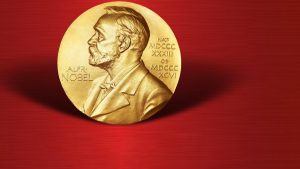by Jochen Szangolies

There has been no shortage of articles on this year’s physics Nobel, which, just in case you’ve been living under a rock, was awarded to Alain Aspect, John Clauser, and Anton Zeilinger “for experiments with entangled photons, establishing the violation of Bell inequalities and pioneering quantum information science”. Why, then, add more to the pile?
A justification is given be John Bell himself in his 1966 review article On the Problem of Hidden Variables in Quantum Mechanics: “[l]ike all authors of noncommissioned reviews [the writer] thinks that he can restate the position with such clarity and simplicity that all previous discussions will be eclipsed”. While I like to think that I’m generally more modest in my ambitions than Bell semi-seriously positions himself here, I feel that there is a lacuna in most of the recent coverage that ought to be addressed. That omission is that while there is much talk about what the prize-winning research implies—from the possibility of groundbreaking new quantum technologies to the refutation of dearly held assumptions about physical reality—there is considerably less talk about what it, and Bell’s theorem specifically, actually is, and why it has had enough impact beyond the scientific world to warrant the unique (to the best of my knowledge) distinction of having a street named after it.
In part, this is certainly owed to the constraints of writing for an audience with a diverse background, and the fear of alienating one’s readers by delving too deeply into what might seem like overly technical matters. Luckily (or not), I have no such scruples. However, I—perhaps foolishly—believe that there is a way to get the essential content of Bell’s theorem across without breaking out its full machinery. Indeed, the bare statement of his result is quite simple. At its core, what Bell did was to derive an inequality—a bound on the magnitude of a certain quantity—such that, when it holds, we can write down a joint probability distribution for the possible values of the inputs of the inequality, where these ‘inputs’ are given by measurement results.
Now let’s unpack what this means. Read more »

 Smacked my head on the pavement while jogging across campus in the rain. Had my hands on my stomach, holding documents in place underneath my shirt to keep them dry. So when my foot went out after skipping over a puddle, I couldn’t get my front paws down in time to brace my fall as I corkscrewed through the air, landing on my hip and shoulder, and whiplashing my head downward. Consequently I don’t have the brain power to crank out 2,000 fresh words. So here’s a dated piece about Baby Boomer navel gazing and ressentiment.
Smacked my head on the pavement while jogging across campus in the rain. Had my hands on my stomach, holding documents in place underneath my shirt to keep them dry. So when my foot went out after skipping over a puddle, I couldn’t get my front paws down in time to brace my fall as I corkscrewed through the air, landing on my hip and shoulder, and whiplashing my head downward. Consequently I don’t have the brain power to crank out 2,000 fresh words. So here’s a dated piece about Baby Boomer navel gazing and ressentiment.